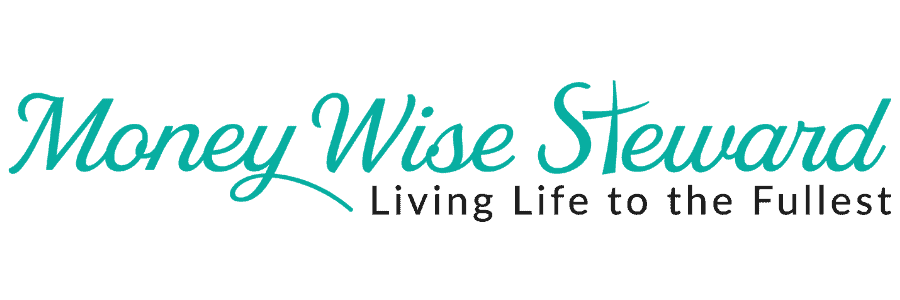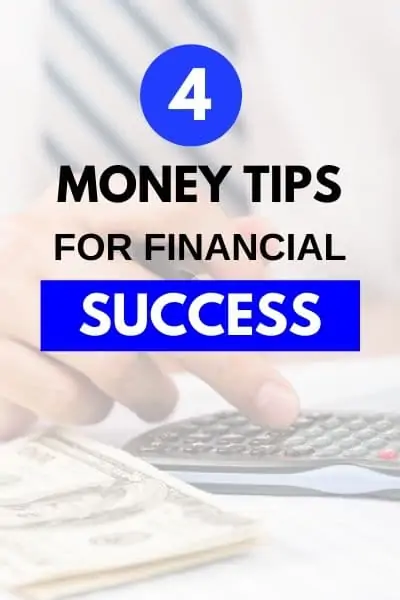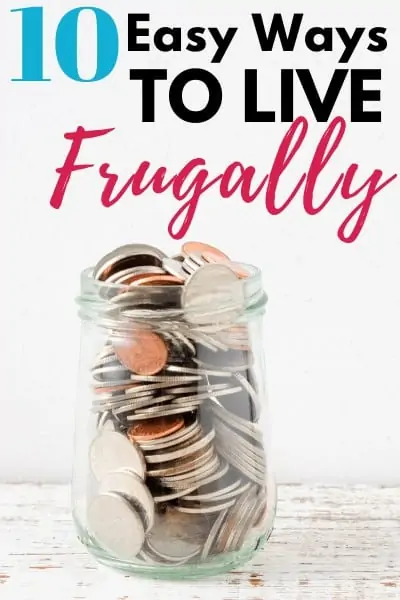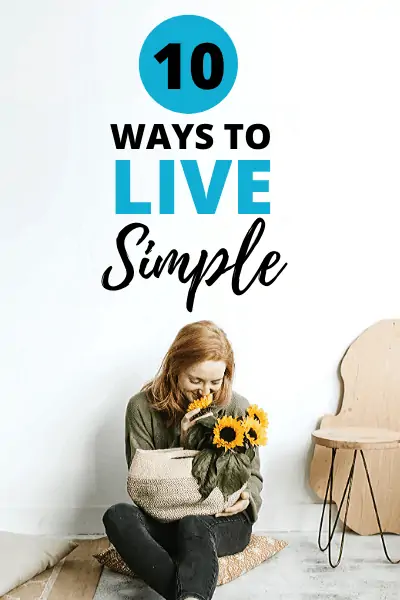8 Ways to Live a Minimalist Lifestyle and Improve your Finances
This article may contain affiliate links. I may earn money from the companies mentioned in this post with no additional cost to you. Please read my disclosure policy for more info. All Bible quotations are from the New King James Version (NKJV) unless otherwise stated Bible Copyright Attribution.
Have you heard the saying “You have succeeded in life when all you really want is only what you really need.” or “Simplicity is the ultimate sophistication.”
We often tend to focus on things that are not of much importance in our lives and neglect what matters to us the most. By doing this, we overspend and end up jeopardizing our financial life.
Did you know you can avoid these mistakes altogether by making the decision to live a minimalist lifestyle?
What is Minimalist Living?
Before discussing minimalism, let me ask you, what do you mean by living a minimalist lifestyle? Does it mean buying fewer clothes, eating less, etc.?
No. Minimalistic doesn’t even mean decluttering.
A minimalist lifestyle means getting rid of life’s excess to focus on what is most important to you so that you can find happiness, freedom, and fulfillment. It will help improve your financial health, too.
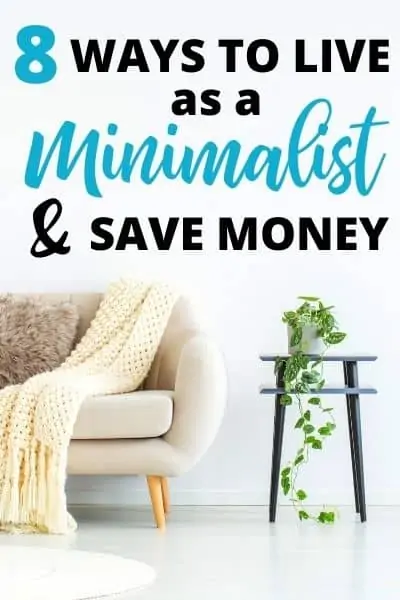
How to Live a Minimalist Lifestyle
If minimalist living sounds like something you want to pursue, I highly recommend you continue reading. I’ve narrowed down 8 different ways for you to become a minimalist.
These tips will help you learn to live with less and improve your finances.
1. Organize your Financial Documents
You may ask how organizing documents can help you lead a minimalist lifestyle or even save more. The truth is if you don’t organize, how will you have a complete idea about your financial life?
Dealing with lots of paperwork is stressful. Therefore, you need to sort your documents. Divide them into 3 categories – necessary, might be necessary, and unnecessary.
You can throw away the documents you no longer need. However, if you’re a bit hesitant to throw them away, you can take photos and store them for future reference.
Converting your paper documents to digital format will reduce a lot of your paperwork. Going green saves your time and will allow you to manage them easier.
Plus! keeping your important documents handy will allow you to reference them whenever necessary.
2. Plan a Realistic Budget
Budgeting is the first and most important step to managing your finances. Plan a budget and make sure it’s a realistic one.
This means planning a budget that you can follow without much effort. You will be very discouraged with your budget if you make it difficult to follow.
Planning and following a budget will help you track your expenses. This can help you decide where to cut back and be on the right track to becoming a minimalist.
There are a few different ways to plan your budget. You can follow the 50-30-20 budgeting strategy. About 50% of your budget should go to satisfy your needs, 30% to your wants, and 20% to your savings. If you want to break your budget categories down further, you can follow this budgeting strategy.
Now, prioritize your spending and get it categorized. Stay focused on things like minimalist kitchen essentials. When you’re following a minimalist lifestyle, you’ll want to make sure to spend on valuable things.
If there is nothing extra you need to buy during the month, save the money instead. This will help you avoid unnecessary clutter. You can save your money for a bigger more valuable purchase later.
3. Distinguish Your Needs from your Wants
To stretch the last point a little further, you will have to distinguish between your needs and wants to make your budget successful. Identify what you value and what is essential for you, and what is in excess that you can do without.
It might seem difficult initially. But, once you start practicing, gradually, you’ll be able to differentiate between things that you value from the things that are not of much value to you.
For example, buying clothes is a need but purchasing branded attire is a want. When you focus on needs, you’ll also be able to avoid impulse purchases.
A tip to do that – when you like something, give yourself some time to think about it, maybe, 3-4 days. If you still like the item and you value it, then you can think of buying it.
If it’s a high-priced item, save up the money before you buy it. Don’t fall into the trap of swiping your credit card to purchase it if you can’t pay it back right away. This will put you in credit card debt and you will be further away from minimalist living.
4. Use Credit Cards to Make Purchases
When you purchase with cash, you are instantly paying the amount. So, you tend to spend less. But, when you purchase with a credit card, you might spend more since you don’t have to pay the amount instantly.
Using debit cards is the same as paying cash. However, using debit cards is not always safe since the amount gets debited instantly, and it’s directly connected to your cash.
Credit cards come with great benefits if you can be responsible about paying them back. One of the biggest benefits of using credit cards is fraud protection.
I’ve had multiple friends over the past few years, tell me that their debit cards got compromised and it took over 60 days to recover their money. Can you imagine not being able to pay your mortgage because your account was short and it wasn’t your fault?
Credit cards protect against things like this. Using a credit card can also help you improve your credit score. If you decide to use a credit card, make sure you repay the outstanding balance at the end of every billing cycle to avoid falling into debt.
The best strategy you can follow is to swipe your cards for an amount that you can comfortably repay at the end of that billing cycle. If you can’t, save the money beforehand and then purchase it.
5. Give Value to your Experience Rather than Material Things
Becoming a minimalist has a lot to do with what you value. Just think for a moment what you value most – a big house, car, cherishable moments with your family and friends, traveling, having new experiences, etc.
When you realize what you value most, you’ll tend to spend less on other things. For example, if you love traveling, you would save money to travel before you would purchase premium branded attire.
Once you adopt a minimalist lifestyle, you won’t fall for consumerism. You will notice that your mindset has shifted from being a consumer to an investor. You will invest in things that are of significant value to you and you’ll avoid other things.
As a result, you’ll be able to save more and invest in things that will give you a good return. For example, you might be interested in investing in a long-term financial goal instead of showing off a brand new expensive car.
6. Cancel Subscriptions You Don’t Use
The world is begging for money all the time and one of the ways they get money is through subscriptions. Check out how many subscriptions you have.
Do you have a gym membership that you rarely use? Do you get magazines that get piled up that you don’t have time to read?
If so, cancel these subscriptions and save money. You can enjoy going out in the open air with your family or going hiking (check out these great hiking boots) on weekends. Likewise, many things are available online that you can read in your spare time.
Make your life simple and minimalistic. Cut back on cable and only pay for the channels you watch. Try to bundle services that you need like internet and telephone service. They usually offer discounts when you bundle services.
7. Focus on Quality More than Quantity
When you focus on quality, you will have fewer things than before. As a result, you will need less space to keep them.
Did you know that about 1 in 10 people rent a self-storage space? That means they have to pay rent.
If you want to live a minimalist lifestyle, you will need to consider how you deal with extra stuff. Is it really necessary? If you focus on living on less then you won’t have to worry about running into storage issues.
8. Consolidate your Debts
When you are considering becoming a minimalist, it’s important to talk about consolidating and paying back debts.
It has dual benefits. First of all, consolidating your debts will simplify your life since you’ll have to pay a single amount every month to repay your multiple debts. Secondly, paying back debts will improve your financial life.
There are multiple ways to consolidate your debt. You can attend a free debt counseling session with a debt relief company and enroll in a consolidation program to repay your unsecured debts with ease.
Alternatively, you can take out a consolidation loan and repay your multiple bills. Then, you need to repay the new loan through single monthly payments.
There are multiple ways to pay off debt. It’s important to be fully aware of your debt settlement options.
Are You Planning on Becoming a Minimalist?
Before concluding, I would like to mention that you can’t start following a minimalist lifestyle overnight. Give yourself some time to change your spending behavior. It will happen gradually.
If you are currently living minimalist, let us know any other tips you may have in the comments below.
Good Nelly is a financial writer who lives in Milwaukee, Wisconsin. She started her financial journey long back. Good Nelly has been associated with Debt Consolidation Care for a long time. Through her writings, she has helped people overcome their debt problems and has solved personal finance-related queries. She has also written for some other websites and blogs. You can follow her Twitter profile.
